Maternal Health and Birth Equity
"Our mothers and children are dying."—Tracey Russell
Maternal Health and Birth Equity
The birth of a child is a time for celebration, but for Black women, it comes with a higher risk. Racial disparities in birthing complications and deaths are serious issues for Black communities. On this episode of Why Race Matters, host Angela Fitzgerald sits down with certified doula Tracey Russell to discuss problems and solutions when it comes to Black maternal health.
GUEST

Tracey Russell
Tracey Russell is a doula living in Madison, Wis. She specializes in providing physical, emotional, and informational support to a mother before, during, and shortly after childbirth to help them achieve the healthiest, most satisfying experience possible. Tracey is also a minister and office manager for the Fountain of Life Covenant Church in Madison.
TRANSCRIPT
Angela Fitzgerald: According to the CDC, Black infants die at a higher rate in Wisconsin than in any other state in the nation. The death rate for Black mothers is nearly three times as high as for white women. These truths are horrifying. On this episode of Why Race Matters, we’ll talk with a certified doula about Black reproductive health and what can be done to help. But first, let’s look closer at women’s health and birthing to explore why race matters when we talk about it.
[upbeat music]
[serious instrumental music]
In America, the practices associated with giving birth bear a dark past rooted in slavery. In the 19th century, the father of gynecology, James Marion Sims, experimented on enslaved Black women in front of audiences without anesthesia for four years before refining his techniques. Medical practices have come a long way, but Black women still suffer. In Wisconsin, Black women are five times more likely to experience pregnancy-related deaths compared to their white counterparts. Black women are also more likely to experience barriers to obtaining quality healthcare, coupled with weathering, or the stress that results from the long-term effects of racism and discrimination. When compared to other adult medical specialties, obstetrics and gynecology tends to have more diverse representation, though only about 11% of OB-GYNs are Black. Other trained professionals, such as doulas and midwives, are available to offer support to Black women during their birthing process to improve health outcomes. Today, we’ll talk with certified doula, Tracey Russell, about the work she’s doing to advocate for Black women’s maternal health through culturally responsive care. Hi Tracey and thank you for joining us today.
Tracey Russell: Good afternoon.
Angela Fitzgerald: So, tell us about your story and what has brought you to the profession that you’re in.
Tracey Russell: I’m a mother, I am a Nana, two beautiful boys, Jace and Jayden. And throughout the years, I have been actually volunteering as a doula, not knowing that that’s what I was doing. And over the last three to five years, I’ve gotten more involved in the doula role, and aspects of a doula, and learning how significant it is. And so, in researching history and looking at doulas and midwives, and realizing that in our community, they were just so prominent, necessary, at the time, and realizing that they’re needed and necessary even still today. And so, I wanted to be able to be an asset to my community and to leave a legacy.
Angela Fitzgerald: Hmm, okay. And so, for those of us like myself who have not experienced a birthing process, what exactly is a doula, and what’s the distinction between a doula and a midwife? Like I follow some Instagram accounts, but I don’t fully know the difference.
Tracey Russell: Okay, so, a midwife is more clinical a midwife would have more clinical services, and can deliver a birth their-selves, just like a doctor could. They could also do home births. Where a doula is support to the midwife and the doctor. So a doula would come in and support the mother, and it’s a concentration around the mother, her pregnancy, her birth, whether it be during the birthing process, active birth, and sometimes even postpartum birth.
Angela Fitzgerald: Gotcha, okay. And so, you’ve mentioned historically the significance of doulas and midwives, you said in our community. So tell us more about that. Like, why in the Black community, specifically, are doulas and midwives so crucial?
Tracey Russell: The infant mortality rate with African American women, Latino, and just women of color, has just significantly rised. Within our country, within our nation, it’s astounding how many mothers are losing their lives, are losing their babies. And unfortunately, as time has gone on, it’s become a business within the medical field for mothers to give birth. And it’s a natural process. Mothers aren’t sick. And I think, unfortunately, it’s seen as a sickness. It isn’t. Your body knows what to do when it’s pregnant. And we want to support the mother through that change, through that transition.
Angela Fitzgerald: And so, why do you think there are these distinctions? You mentioned that infant mortality rates, even other like sort of pregnancy conditions that there’s disparities in terms of women of color, Black women. Why do you think that is? Like, why are there these differences based on race and birth outcomes?
Tracey Russell: Well, for one, culture matters a lot. Each woman’s body is different. And culturally, there are differences between our bodies, how we handle pain, what we perceive as pain, and what people perceive as pain from us. So, to give you an example, I had a mom who was in pain, and the perception from the nursing staff was that she wasn’t in as much pain as she was because she didn’t project how they thought in their mind that she should, or that she would. So she’s internalizing the pain. I see the tension in her face. But because she, like again, because of what they think pain should sound like, act like, they’re like, “Oh, but you’re good. “You can, you can handle this. And you know, you can do this without pain.” Or they go to the extreme and do an epidural. And so, with an epidural, you can have a longer labor, because the mother is basically numb from the waist down at that point. So then that changes what type of labor that, you know, the mother would have. And what doulas want to do is we want to support the mother to have the best birthing experience that she wants to have. And if that’s a natural birth, then we want to help her do that.
Angela Fitzgerald: And so you raised a good point about basically the medical industry, it’s a business, right? And so decisions might be made during the birthing process that aren’t necessarily of the most benefit to the mom and the infant, but more like, okay, we gotta get you in and out. So how we can do that in the most efficient way possible may not be what the mother wants, which is where it sounds like the doula steps in in an advocacy role. And thinking more about the disparity side of thing, Tracey, I’m wondering if you can unpack some more about like what that means and how that may be playing out in Wisconsin, because it’s so layered, right? We think about access to doulas. There’s a financial piece to that. And the financial piece plays out in other ways, like general access to health care, diet, where you live, air quality. But even when we take that part of the argument away, we’re still seeing disparities among Black women. Like you’ve had Serena Williams, Beyoncé, like others where that’s not an issue, still having stories similar to Black women who were maybe have more financial challenges. So what do you think in your opinion from a professional standpoint, like, what is it? Like what is the undercurrent?
Tracey Russell: There is an assumption that we can handle pain, that we don’t experience pain the same way, that we’re less educated. Like you said, even to have Serena Williams to, you know, experience what she did. And, you have to realize each individual person, whether you’re pregnant or not, is different. What a doctor needs to take in account, what a midwife needs to take in account, what doulas need to take into account is that each mom is gonna be different, how she handle pain different, and she knows her body. You know, so when I come in to meet with a mother, the first thing I want to ask is, how do you feel? How are you feeling? How does this
[Tracey laughing]
Angela Fitzgerald: Exactly, and the thing is, if you’re already approaching your patient as one that, you said has less knowledge than you. And we think about like the history, especially of Black Americans in this country, how we have historically like not been listened to when it comes to like our care, not been cared about period, much less listened to, and even how the gynecological field was came out of work that was done on Black women with no anesthesia. Like our pain levels, like who cares, right? And so we are seeing manifestations of that continue in a way that’s really harming our health and infant health. And so there has to be some changes, right? And so it sounds like the doula being there as a part of it, but also who else is in the room. I think that representation part. Like, if you are connecting culturally with your patient, then your understanding of different ways in which they may express pain, and then you’re able to attend to those needs as opposed to like, I don’t register that that’s painful. So I’m gonna keep doing business as usual, and that could result in some negative outcomes. I feel like all of that goes in together. So, it’s not like just a one size fits all sort of approach, but it sounds like doulas are one step towards that resolve.
Tracey Russell: Well, and it takes time. And so we have the time, like I said, to be there. The doctors, the nurses have other patients, charting to do, other mothers that may be delivering. So they don’t have the time to put in that a doula does to be there with that mother through that entire birthing experience. And one mother may be in labor 10 hours, one may be in labor for five, one may be 15 or 20, you know.
Angela Fitzgerald: I commend.
Tracey Russell: Yeah, her active labor—
[both women laughing]
Angela Fitzgerald: Continue, I’m just, that amount of time.
Tracey Russell: Her active labor, you know, may be four hours or five hours. Some mothers could push for an hour, you know, or could be pushing for two hours. And second births are typically easier, you know. But it’s time consuming and you may not have that time, you know, or the doctor or the nurse may not feel as though you have that time when you go in. And additionally, if you are in labor that long, and you’re in a hospital setting, they may have changed shifts by then. So now you have a whole new staff.
Angela Fitzgerald: That’s a good point.
Tracey Russell: A whole new nurse that’s coming in, right? So you’ve, you started gelling with this one nurse, and then they’re gone, you know, my shift is done. Your doula’s not gone. Your doula is there with you. Culturally, we’re one of two things. We’re believing totally what the doctor’s saying because they’re the doctors.
Angela Fitzgerald: Right. They’re the experts, they’ve gone to school for all these years.
Tracey Russell: They’re the experts.
Angela Fitzgerald: Right.
Tracey Russell: And/or we’re fearful because what we have experienced throughout our culture with doctors and how we’re being treated. And then that anxiety comes in, and then you respond to that, and then they respond back to you. And then before you know it, you’re in a situation where you didn’t want that to happen, all based off of perceptions, as opposed to a clean slate, and coming in, and seeing me as an individual, as a person, you know, taking my culture in hand, but are you culturally competent?
Angela Fitzgerald: Mm-hm. That’s a good question.
Tracey Russell: And that matters, to be culturally competent matters in any form of medical care, any form of medical care. And I feel as though that’s so much more important that we get back to that, because our mothers and children are dying. And it’s not making news. This should be, I mean, we are in like a crisis. And a lot of people don’t know that, they don’t know that.
Angela Fitzgerald: You’ve mentioned a couple of times about cesareans and those being like the decision of the medical professional, and not necessarily the decision of the mom, but can you, for those of us who don’t know, can you explain like, why, like, why that matters? Why the fact that a cesarean was chosen over maybe like a vaginal birth, why that matters in the conversation of health disparities, infant mortality, all of that?
Tracey Russell: Well, I mean, it’s surgery, right? I had cesareans with my children. And I thank God for that. And I thank God for the medical staff. Some cesareans are necessary. They really are to save the life of the mother or the child.
But what we want to do is we want to make sure that it’s at the point that it’s necessary. And not because the mother’s been birthing too long, because another team has come in, because there’s other moms that’s in labor, because of COVID, and we need to keep everybody spaced out, and the timing, and so many mothers in labor room at the same, you know?
So, I’m not against cesarean sections. But what we want to do is not have unnecessary cesareans because the staff is rushed, because the mother is in pain, no one can handle, you know, her being in pain. So education is the key and teamwork is the key so that everyone is on one accord. And that, if you do say to the mother that she has to have a cesarean, she fully understands her options, and why the cesarean is needed.
Angela Fitzgerald: Right, and that could create extra anxiety and stress on top of the stress of like, I’m having a baby, and now I’m going to be undergoing surgery that I did not anticipate needing, and like all of that. So, absolutely. And so in terms of those who are watching this conversation who either can relate absolutely to the stories that you shared, or who are like, I’m hearing about this for the first time, what do you want them to take away from what we’re, what you’ve shared?
Tracey Russell: Specifically, I’m gonna speak specifically to Wisconsin. We need to make sure that we’re getting out there, foots on the ground, having conversations, and allowing people and showing people alternatives to healthcare brought, but specifically to moms and doulas, that there are midwives out there, there are doulas out there, this is an option, and really push for doulas to be able to use the insurance, so mothers won’t see another financial strain. We should be, and I just can’t say this enough, we should be part of that clinical care. That should be an option for every mother, for every mother. And I believe that’s a way that we can combat the infant mortality, and it needs to be women of color. It needs to be Latino women, African American women, Asian women. You need to see someone that looks like you, that can relate to your culture, as well as explain to you about the birthing process and be there to support you, so you can have that option. And so I’m not saying that the dominant cultures shouldn’t be there, but what I am saying is, it needs to be an option. If you look up and look for that now, you’re, like you said, I didn’t even know this was in existence. We’re not known, or you don’t see anyone that looks like you, and you should be able to have that option.
Angela Fitzgerald: So I appreciate you being there for that reason. You’re making my job easier as a part of the birthing team.
Tracey Russell: Exactly, exactly.
Angela Fitzgerald: Awesome, thank you so much, Tracey.
Tracey Russell: Thank you.
[laughing]
Angela Fitzgerald: The birth of a child is a time for celebration, but for Black women, it comes with a higher risk. Racial disparities in birthing complications and deaths have persisted over time. However, there are organizations and people like Tracey willing to help. The sooner we address why race matters when we talk about pregnancy and birthing, the closer we are to fixing it.
To learn more, go to pbswisconsin.org/whyracematters to find additional links and resources to help keep you informed. There, you can also check out the Why Race Matters podcast as well as additional episodes.
[upbeat music]
Speaker: Funding for Why Race Matters is provided by CUNA Mutual Group, Park Bank, Alliant Energy, Madison Museum of Contemporary Art, Focus Fund for Wisconsin Programming, and Friends of PBS Wisconsin.
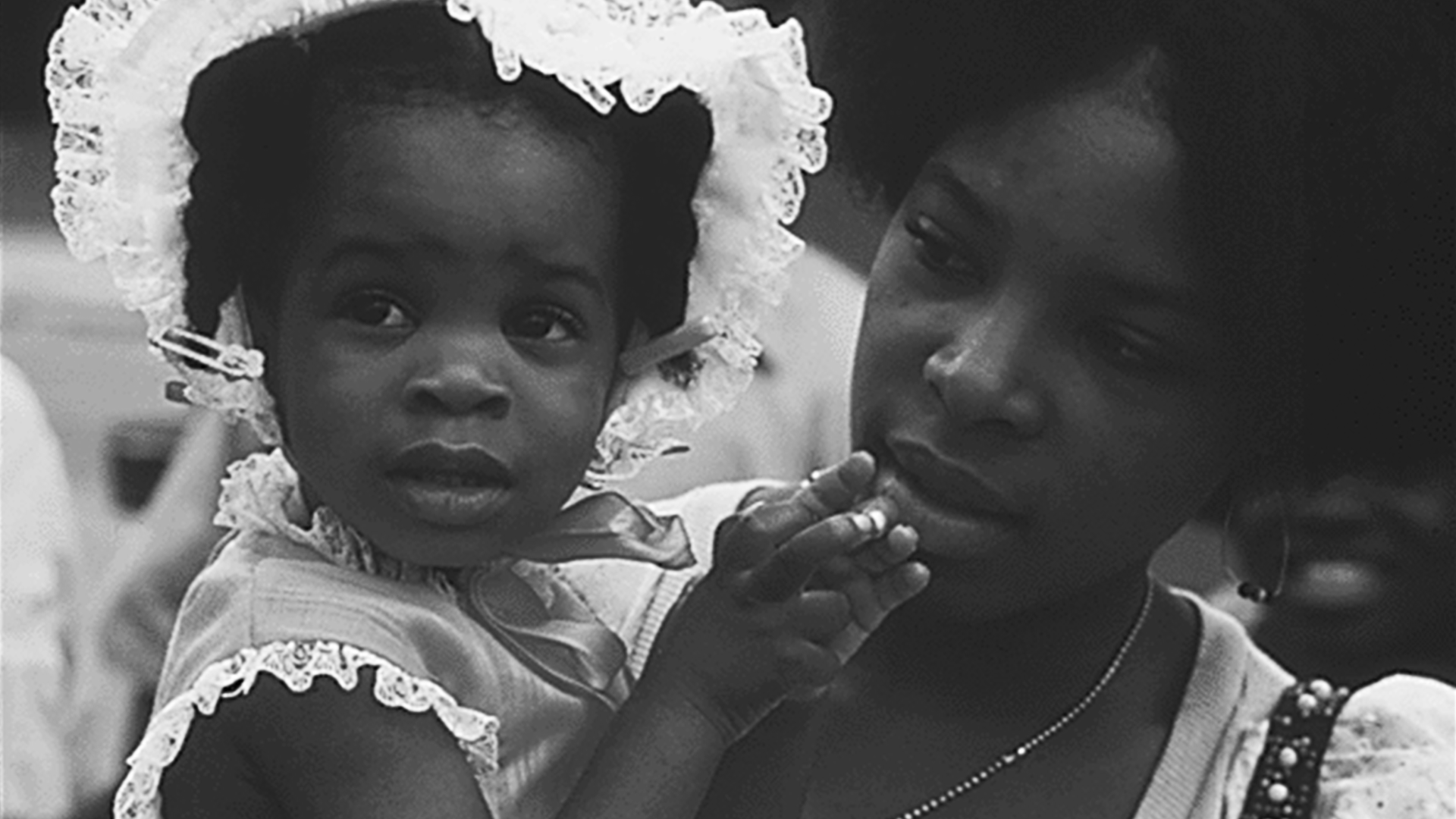
Photo/U.S. Environmental Protection Agency DOCUMERICA Series
Resources
Links for expecting and new Black mothers, including local organizations supporting moms, and additional information on Black maternal health and support.
 Passport
Passport
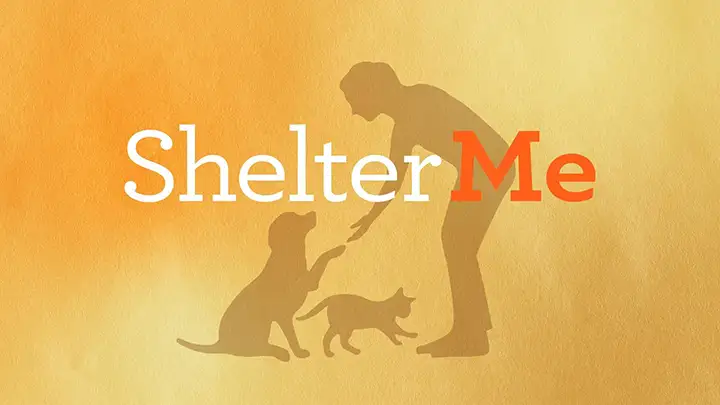
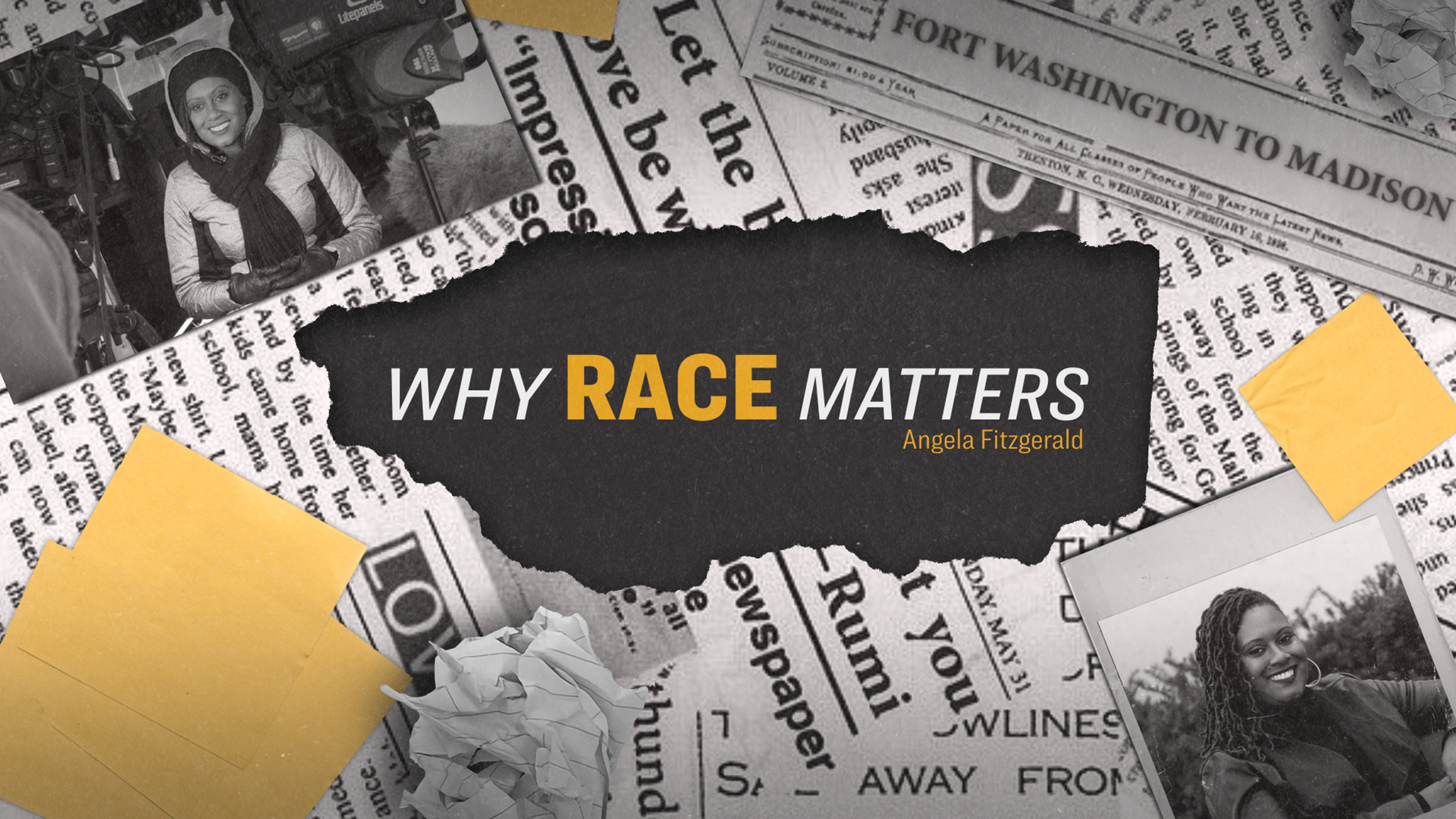



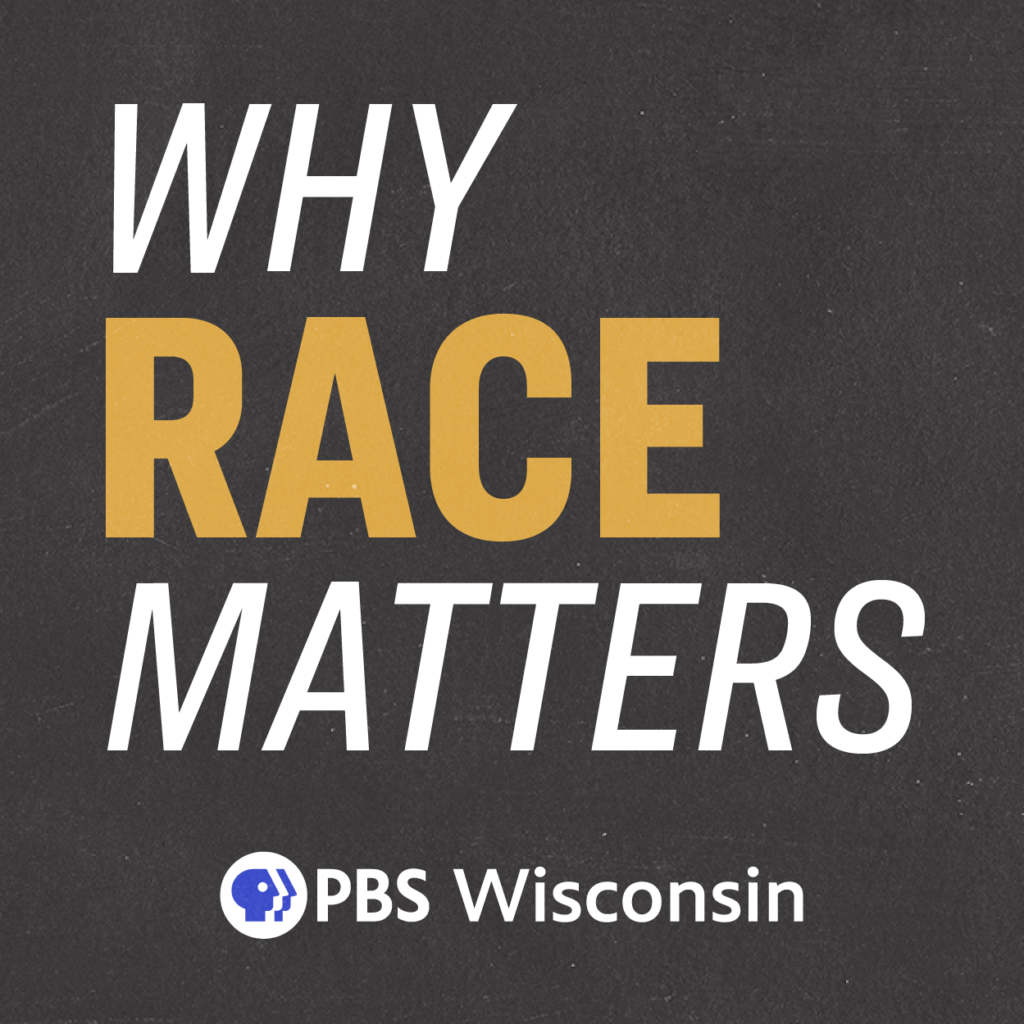

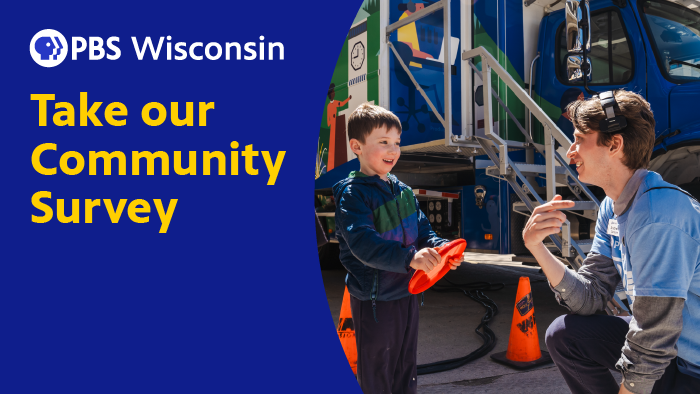
Follow Us